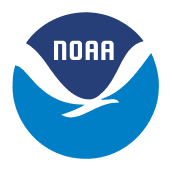Common Community Physics Package released to the public
The public release of the Common Community Physics Package and the Single Column Model (CCPP-SCM v5.0.0) bundle facilitates the development of physical parameterizations by the broader community, which is a cornerstone to enhance the transfer of innovations onto operational numerical weather prediction models. This package was released on March 8, 2021, and contains the CCPP-Physics, a library of physical parameterizations, the CCPP-Framework, an infrastructure that connects the physics to host models, and the CCPP Single Column Model, a simple host model that employs the CCPP-Physics and CCPP-Framework. Additional information and access to the code can be found here.
The CCPP-Physics is envisioned to contain parameterizations used in the NOAA Unified Forecast System (UFS) for weather through seasonal prediction timescales, as well as developmental schemes under consideration for upcoming operational implementations. This release contains updated versions of all parameterizations used in NOAA’s operational Global Forecast System (GFS) v15.2 (implemented in 2019), a new scheme (the Noah Multi-Parameterization land surface scheme), plus updated versions of developmental schemes. New capabilities include additional debugging tools and the ability to output physical tendencies from individual parameterizations and developer-customized arrays.
There are some important changes in the CCPP-Framework in this release. To increase performance while enabling flexibility, the build system has been consolidated around the multi-suite static option and the dynamic build capability has been removed.
Changes in the SCM include the ability to use CCPP v5.0.0, configuration of tracers externally via a file, updated surface initialization code, updated case generation script to better handle LSM-related variables when using initial conditions from the Unified Forecast System, and bug fixes. In addition, there was a change in file names and in the authoritative code repository name (now ccpp-scm) to reflect the close tie between the SCM and the CCPP.
As in the last release, five experimental cases are available for use with the CCPP SCM: BOMEX maritime shallow convection, LASSO continental shallow convection, ASTEX stratocumulus-to-cumulus transition, ARM SGP Summer 1997 continental deep convection, and TWP-ICE maritime deep convection.
The CCPP parameterizations are aggregated in suites by the host models. The DTC provides support for using CCPP v5.0.0 with the CCPP SCM (suites GFS_v15p2, GFS_v16beta, csawmg, and GSD_v1) and with the Unified Forecast System (UFS) Short Range v1 Application (suites GFS_v15p2, RRFS_v1alpha). Suite RRFS_v1alpha is new in this release and is intended for use in convective-allowing configurations. The CCPP v5.0.0 is not intended for use with the UFS Medium-Range Weather Application v1. For access to the SCM and CCPP code and documentation, please visit the CCPP website at https://dtcenter.org/ccpp, where you will find a Users’ Guide, a list of known issues, frequently asked questions, technical documentation, and scientific documentation. For information about the UFS, including its use with CCPP, please visit https://ufscommunity.org/.
For questions or comments about the CCPP and the SCM, please use our Forum at http://dtcenter.org/forum/ccpp-user-support. When using CCPP with the UFS, you can also direct your questions to the UFS community forum.
This latest release was the work of the Developmental Testbed Center and GSL’s team including Ligia Bernardet, Dom Heinzeller (CIRES), Man Zhang (CIRES), Xia Sun (CIRES), and LInlin Pan (CIRES).
Our Mission
Lead research and directed development through the transition of environmental data, models, products, tools, and services to support commerce, protect life and property, and promote a scientifically literate public.
Research Areas
Organizational Excellence, Earth System Prediction, Advanced Technologies, and Decision Support are the foundation to achieving the GSL Grand Challenge: Deliver actionable global storm-scale prediction and environmental information through advanced technologies to serve society.
Global Systems Laboratory

